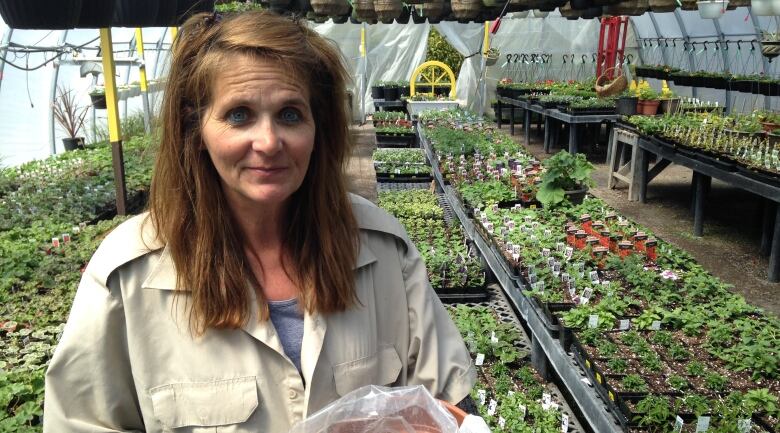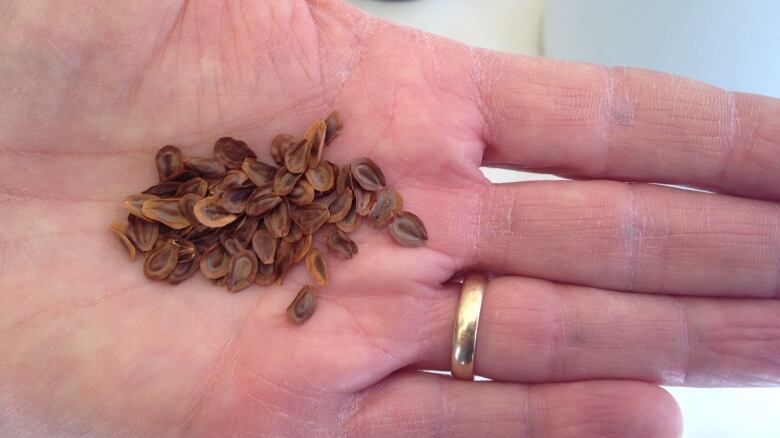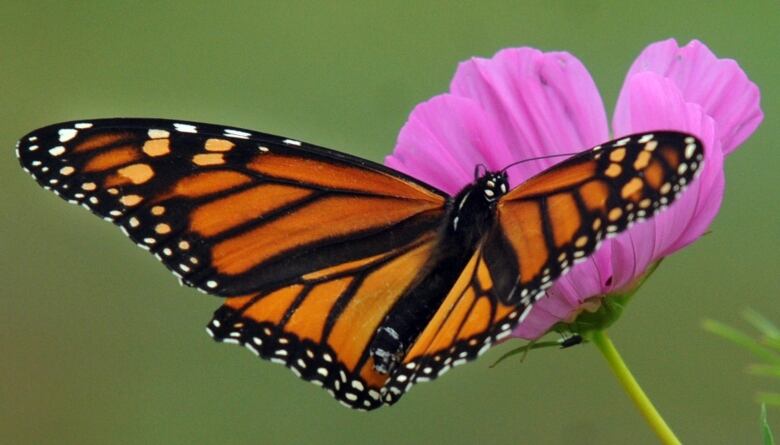Jim Wilson distributes milkweed seeds for monarch butterflies
Quispamsis naturalist gathers and distributes close to 10,000 seeds for monarch butterflies

A Quispamsis naturalist who has been trying to help monarch butterflies is now getting a boost from two local greenhouses.
Migratory monarch butterflies use milkweed for both breeding and food but in the past decade, the plants have been threatened by pesticide use.
For about three years, Jim Wilson has been trying to help by growing swamp milkweed and gathering the seeds for distribution.
"I put a set of instructions together with these milkweed seeds and put them in little packets and give them out to as many people as possible," he said.
- New Brunswick man raising butterflies at home to boost numbers
- Monarch butterfly sanctuary in Mexico hit by cold weather
- Greener Village tagging monarch butterflies before migration
Getting the seeds from the pods in which they grow can be tedious work. Wilson fashioned a bucket into a separating device and has now managed to gather an estimated 10,000 seeds.
Wilson began handing out the packets, which contain about 75 to 100 seeds, to anyone interested.
Now, two Saint John garden centres have them available for anyone interested. The Halifax Seed Company was the first followed by the Shades of Green Garden Centre.
Brenda Carpenter, the co-owner of Shades of Green, said she instantly became interested in the project while at the Halifax Seed Company.
"I immediately dug in my pocket and took out $6 and bought three packages," she said.
'They're almost gone'

Carpenter managed to get 35 packets and three weeks later, she said they're almost gone.
"They're excited, they're on board" she said of her customers.
"They can't wait to get home and try them."
The seeds are free, but a $2 donation to the Saint John Naturalists Club is encouraged. The money goes toward helping pay for a tagging program which tracks the butterflies.
The club buys the tags from the University of Kansas for its "Monarch Watch" program.
Growing the swamp milkweed seeds isn't the easiest process, though.
The small, brown seeds take several weeks to prepare before they're ready to be potted. They first need to be kept in the cold in a bag containing damp sand or soil for up to eight weeks.
Once they've completed vernalisation, Wilson said they can be potted in shallow soil in.
After the plants have grown about 12 centimetres, they're ready to be transplanted outdoors in a sunny area with little plant competition.
Easy to manage

While growing them may be an involved process, Wilson said the perennial plants are easy to manage.
Swamp milkweed contain fibrous roots, so they won't spread like invasive weeds. While they are a major staple for monarch butterflies, Wilson said they are also a big hit another threatened insect: bees.
Wilson also said growing the plants can be a "great introduction to nature" for both children and adults. Milkweed provides a jump-off point to talk about geography, ecology and the mysterious nature of the migratory butterflies.
Carpenter said once she completes growing her first tray of milkweed, she'll give them away much like the seeds.
Back at his home in Quispamsis, Wilson said he thinks he's given away around 1,000 seed packets this year.
He's keen to continue gathering the seeds so that New Brunswick can act as a helpful location to help the monarch butterfly rebound.













_(720p).jpg)


 OFFICIAL HD MUSIC VIDEO.jpg)
.jpg)



























































































